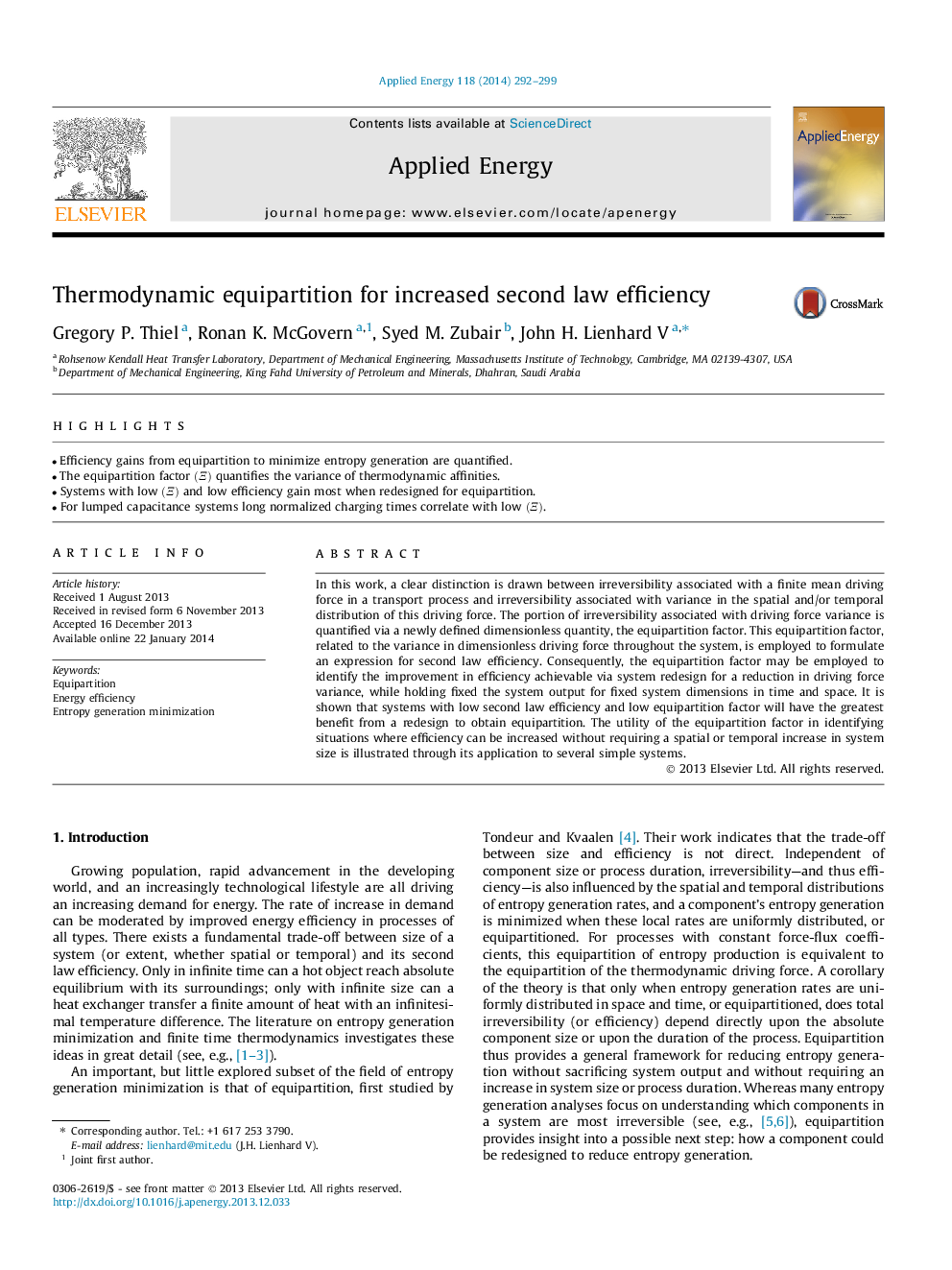| کد مقاله | کد نشریه | سال انتشار | مقاله انگلیسی | نسخه تمام متن |
|---|---|---|---|---|
| 242871 | 501907 | 2014 | 8 صفحه PDF | دانلود رایگان |
• Efficiency gains from equipartition to minimize entropy generation are quantified.
• The equipartition factor (Ξ)(Ξ) quantifies the variance of thermodynamic affinities.
• Systems with low (Ξ)(Ξ) and low efficiency gain most when redesigned for equipartition.
• For lumped capacitance systems long normalized charging times correlate with low (Ξ)(Ξ).
In this work, a clear distinction is drawn between irreversibility associated with a finite mean driving force in a transport process and irreversibility associated with variance in the spatial and/or temporal distribution of this driving force. The portion of irreversibility associated with driving force variance is quantified via a newly defined dimensionless quantity, the equipartition factor. This equipartition factor, related to the variance in dimensionless driving force throughout the system, is employed to formulate an expression for second law efficiency. Consequently, the equipartition factor may be employed to identify the improvement in efficiency achievable via system redesign for a reduction in driving force variance, while holding fixed the system output for fixed system dimensions in time and space. It is shown that systems with low second law efficiency and low equipartition factor will have the greatest benefit from a redesign to obtain equipartition. The utility of the equipartition factor in identifying situations where efficiency can be increased without requiring a spatial or temporal increase in system size is illustrated through its application to several simple systems.
Journal: Applied Energy - Volume 118, 1 April 2014, Pages 292–299
